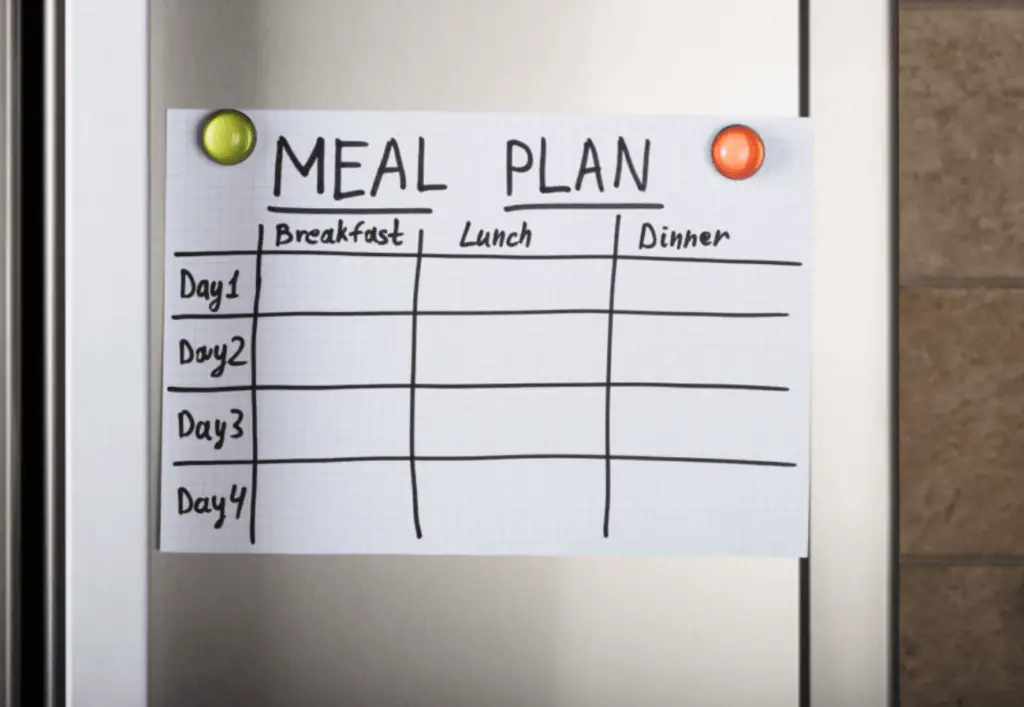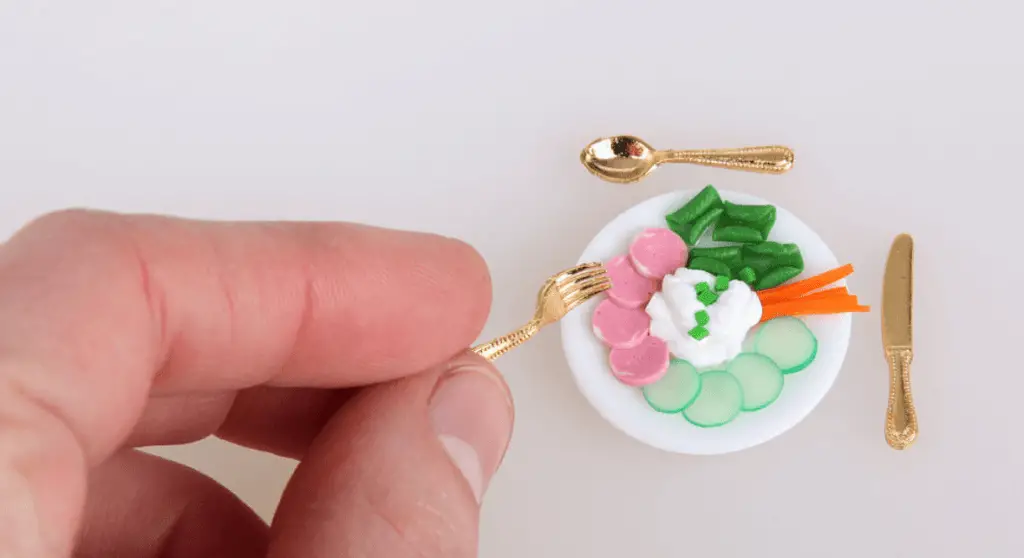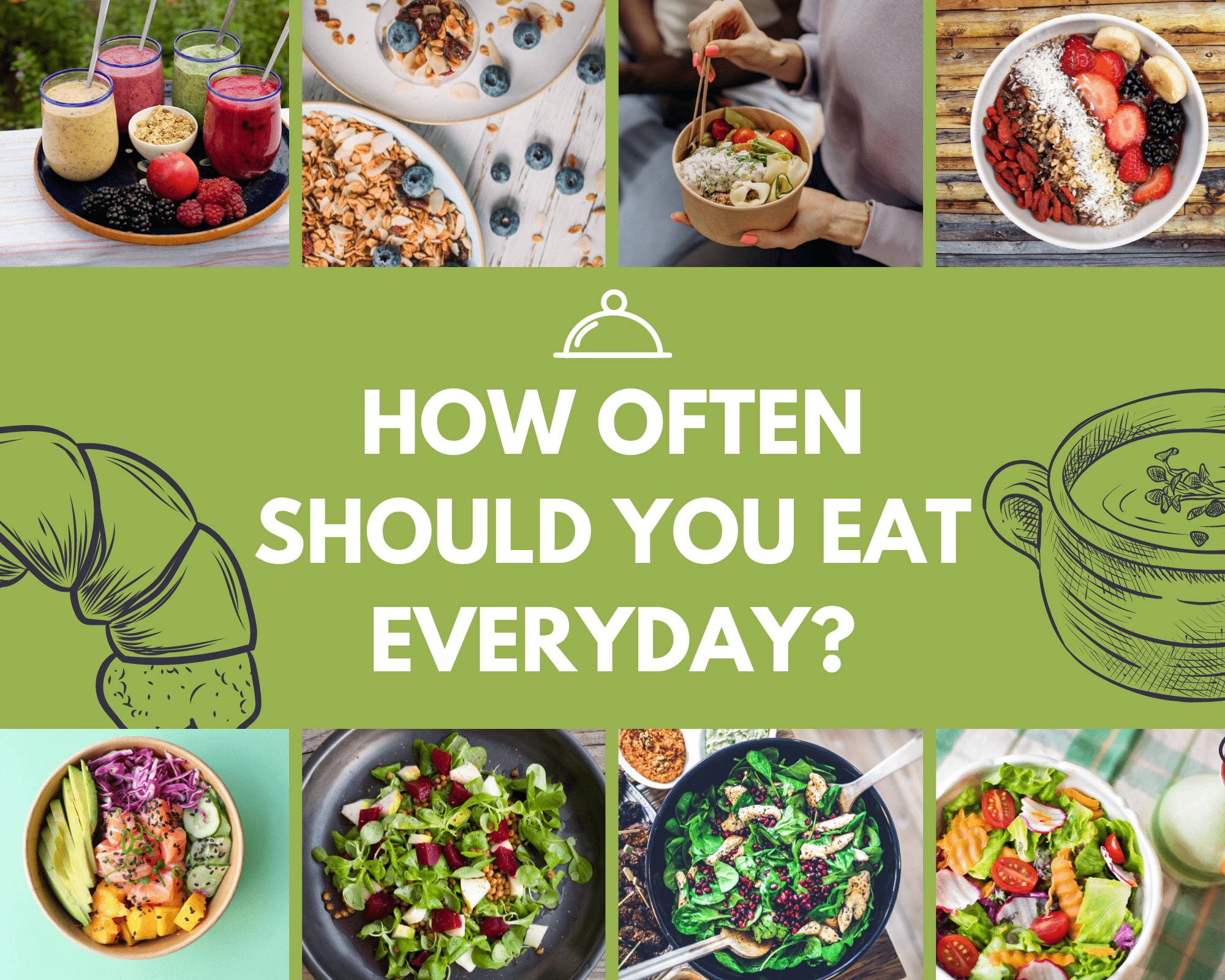There are so many conflicting opinions about how often and how much we need to eat. We have heard that eating six small meals daily or every two to three hours is best to keep our metabolism running or even speed it up. According to others, we should only have three healthy meals spaced out throughout the day rather than snacking.
According to some, eating after 6 p.m. (or 7 p.m., or 8 p.m.) paves the way for fat storage. A saying goes like this: ‘Breakfast like a king, lunch like a prince, and dinner like a pauper’. You need to understand some points to understand the facts better.
What are your Goals?
Your fitness or health goals may influence the amount of food you choose to eat. You may eat a lot when trying to lose weight by eating smaller meals. It will help you by tricking your brain, and you can also lose weight. Whether you’re a professional, amateur athlete, or even an avid exerciser, three meals a day may not suffice.
To fuel your body and help it recover, you may need to eat pre-and post-workout meals/snacks. Marathoners, half-marathoners, and triathletes need to consume fuel even while training.
What’s your Schedule?

People usually start their day by waking up, going to work, and ending it by returning home or going out. In a schedule like this, it is possible to have breakfast, lunch, and dinner every day. Parents that stay home with the kids may eat smaller meals or snacks more frequently because they have to balance school pick-ups, activities, and housework daily.
Find out what works for you when it comes to your schedule. One of the most common questions is how often you should eat. Having small and frequent meals is recommended by some experts. Some recommend eating more frequently but in larger portions. Which one is more helpful to you?
Having small and frequent meals schedule
In addition to three balanced meals per day, nutritionists suggest having one to three snacks. Many factors influence how many calories you need, such as your weight, your age, your sex, and the activities you do. According to nutrition professionals, food should not be skipped for more than five hours. It can affect a person’s decision-making and make them voracious (when they’re awake). It may result in choosing calorie-dense foods like fast food.
click the link here for some food recipes
Pros of small servings and frequent meals

Control maximum blood sugar
Your body breaks down the food into glucose. It is the primary source of energy for your body. Insulin and glucose level will be balanced with frequent eating and small meals.
Weight control
Small meals will help you limit cravings and minimize your overall calorie intake. The frequency and amount of food intake decide the overall fullness. Smaller meals will help your body to consume food as energy immediately rather than storing it as fat.
Better digestion
You may have digestive system disorders when eating large meals. Instead, eating smaller and more frequent meals can avoid its negative impacts.
Cons of small servings and frequent meals
Overconsumption
You can control your hunger by eating smaller meals. But it can also result in overeating, especially if you want a calorie deficit.
Having large and less frequent meals schedule
Another perspective is eating one or two larger meals a day. This gives fewer opportunities for people to eat extra calories throughout the day.
Pros of large and less frequent meals
Burns stored fat
You’ll go longer without eating large and less frequent meals. Thus, the body will burn the stored fat within this period.
Saves time
Less frequent meals will let you spend less time preparing and cooking. You can also choose healthy meals by focusing on two meals a day.
Calorie restriction
Having two meals daily with strict discipline can also limit your calorie intake.
Cons of large and less frequent meals

Hunger
If you are used to having a meal three or more times, you may feel hungry by skipping meals.
Fatigue
Less supply of energy throughout the day may let your body feel tired.
Feeling weak and moody
With less energy, your sugar level will decrease, and you’ll feel weak and moody ultimately.
Final verdict:
How many meals should you eat per day?
Your health and body determine what you should do. A person experiencing malnutrition may not be healthy if they eat only two meals daily. In the same way, eating six times a day may not be suitable for someone who struggles with portion control. A person’s health and body determine how often they should eat.
Consult your doctor about how to feel healthy, energized, and rejuvenated. There are benefits and drawbacks to eating smaller but more frequent meals and larger but less frequent meals. So, what’s the recommended number of meals per day? There’s no one-size-fits-all approach. Make sure you consult your doctor and do your research. Follow your body’s lead and make a decision based on your health.




